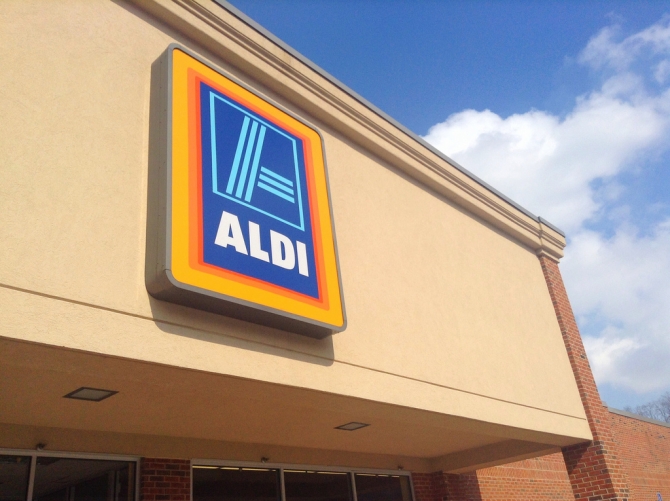Discount brands have added an increased element of competition to the supermarket sector, with consumers keen to continue saving on the weekly shop even after the end of the recession. This has seen German import brands Aldi and Lidl grow their market share astronomically of late at the expense of brands which have traditionally been seen as the UK’s powerhouses.

According to new data compiled by Kantar Worldpanel, Aldi and Lidl’s combined market share rose to 8 per cent this month, compared to the 7.3 per cent they held this time last year. This is due to steeply rising sales, with Aldi recording an increase of 35.4 per cent and Lidl of 17.2 per cent in the 12 weeks to the 30th of March.
Contrasting sharply with this success are figures from Morrisons and Asda, which both saw market share and sales drop in the past year. Asda fared best with just a 0.5 per cent dip in sales, while Morrisons continued to struggle with a plunge of 3.8 per cent during the first quarter of the year.
Kantar Worldpanel director Edward Garner says; “Amid a challenging market backdrop, individual retailer growth might be expected to be restricted.
“This is certainly not the case for Aldi which achieved its highest ever growth of 35.4 per cent, boosting the retailer to a record market share of 4.6 per cent – Lidl also experienced strong growth in a record breaking month, and now accounts for 3.4 per cent of the market.
“All of the ‘big four’ supermarkets have faced declining sales over the past 12 weeks, which has been accentuated by the late falling of Easter; nevertheless, they have also seen worrying share declines, with the most resilient performance coming from Asda this period.”
It may come as a shock to some that Tesco, once considered the clear market leader, fared little better than Morrisons with a 3 per cent drop in sales during the 12 week period. This means that its market share now stands at 28.6 per cent – a sharp decrease from last year’s 29.7 per cent total.
The true surprise result came from Sainsbury’s, which has largely been seen as the most resilient of the big four since Tesco began to fall from grace. During the first quarter, its market share fell from 16.9 per cent to 16.5 per cent, which has caused analysts to question whether the brand is doing enough to participate in price drop schemes favoured by key rivals.
The 0.4 per cent drop in market share is the largest seen at Sainsbury’s in a decade, and has caused some to speculate whether the brand is truly a match for the discounters currently taking the supermarket sector by storm.
Jeffries retail analyst James Grzinic says; “The ‘big four’ saw cash sales decline by nearly 5 per cent with Tesco suffering against a tough comparable and Sainsbury’s momentum deteriorating further.
“The Easter skew has seen sales slow at quality operators, but the discounters, especially Aldi, continue to power ahead.”
Do you think Aldi is on course to steal the top spot from Tesco in the supermarket stakes?
Previous Post
Madison International Real Estate Fund exceeds Target